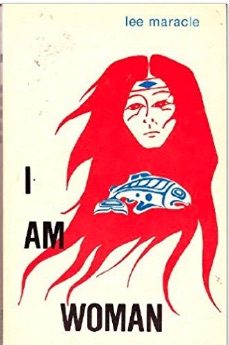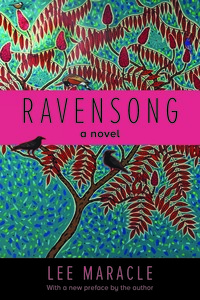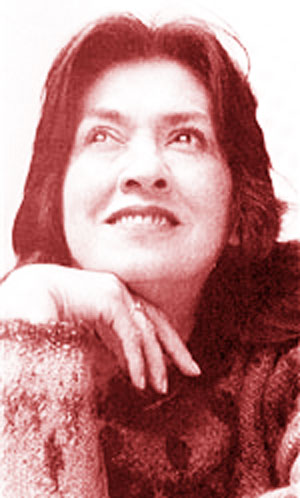Lee Maracle 1950 – 2021
November 12th, 2021

One of the first Indigenous writers in Canada to publish fiction, Lee Maracle died at the age of 71 on Nov. 11, 2021 of cardiac arrest.
Of Salish and Cree ancestry, Maracle was a member of the Stó:lo First Nation. Her groundbreaking synthesis of autobiography and fiction, Bobbi Lee, Indian Rebel (Women’s Press, 1975) recounts travels in the 1960s and 1970s within B.C., California and Toronto’s counter-cultural community. It admonishes the rest of Canada to “search out the meaning of colonial robbery and figure out how you are going to undo it all.”
 Twelve years later, Maracle published a collection of essays and memoirs, I Am Woman (Write-On Press, 1988), which describes her struggle to “climb the mountain of racism.” Including poetry and photos of loved ones, I Am Woman was first published by her second husband Dennis Maracle, who also helped Maracle publish a little-known collection of poems, Seeds.
Twelve years later, Maracle published a collection of essays and memoirs, I Am Woman (Write-On Press, 1988), which describes her struggle to “climb the mountain of racism.” Including poetry and photos of loved ones, I Am Woman was first published by her second husband Dennis Maracle, who also helped Maracle publish a little-known collection of poems, Seeds.
Sundogs (Theytus, 1992), promoted as Maracle’s first novel, a 20-year-old East Vancouver sociology student, Marianne, wants relief from her wrathful mother’s railings at the television news and insistence that white society is an anti-Native genocidal plot. As the only unilingual sibling of five, Marianne is the “baby” who lacks confidence in Aboriginal ways. Beset by family upheavals, racism and patriarchy, Marianne frequently feels “tethered to the hot wire of my own rage.”
Over the course of one summer in Sundogs, Marianne is liberated by Elijah Harper’s anti-constitutional stance and the Oka stand-off. “If Elijah upset Canada, he upset me more. His message to us was profoundly simple; we are worth fighting for, we are worth caring for, we are worthy.” Marianne has an affair with her boss, an Aboriginal rights lobbyist, but rejects him when she learns he is married. She joins a First Nations long distance run from Penticton to Oka, carrying a feather for peace. She also feels inspired by sundogs, “impossible images reflected under extraordinary circumstances.”
 In Maracle’s novel, Ravensong (Press Gang, 1993) urban Aboriginal women in a Pacific Northwest community that is beset by a flu epidemic in the 1950s must choose between saving the lives of elders or the lives of their babies. The young protagonist, Stacey, is at odds with her mother’s adherence to old customs. Circling and touching the storyline are Raven’s musings, which poke fun and impart wisdom.
In Maracle’s novel, Ravensong (Press Gang, 1993) urban Aboriginal women in a Pacific Northwest community that is beset by a flu epidemic in the 1950s must choose between saving the lives of elders or the lives of their babies. The young protagonist, Stacey, is at odds with her mother’s adherence to old customs. Circling and touching the storyline are Raven’s musings, which poke fun and impart wisdom.
Maracle’s first young adult novel, Will’s Garden (Theytus, 2002) describes the ceremonial traditions of Stó:lo boys who are becoming men.
Her last novel, Celia’s Song (Cormorant, 2014) was nominated in 2020 for the $50,000 US ($66,560 Cdn) Neustadt Prize, dubbed the “American Nobel.” The prestigious award is given every two years to a poet, novelist or playwright in recognition of their body of work.
*
“I was born in Vancouver on July 2nd 1950 and raised on the North Shore mud flats about two miles east of Second Narrows Bridge,” Maracle wrote in her first book. Her mother, she says, worked 14 to 16 hours a day at very hard physical labour to feed and clothe seven children. At 14, Lee Maracle became B.C.’s top high school long distance runner.
 In 1990, Maracle’s monograph from Gallerie Publications explained her resistance to European academic models. That same year she co-edited the proceedings of a 1988 conference, Telling It: Women and language Across Cultures (Press Gang) and released her first compilation of stories, Sojourner’s Truth (1992). Her 1992 essay for Vancouver’s Step magazine entitled “Goodbye Columbus” recalls her Métis mother’s hard work.
In 1990, Maracle’s monograph from Gallerie Publications explained her resistance to European academic models. That same year she co-edited the proceedings of a 1988 conference, Telling It: Women and language Across Cultures (Press Gang) and released her first compilation of stories, Sojourner’s Truth (1992). Her 1992 essay for Vancouver’s Step magazine entitled “Goodbye Columbus” recalls her Métis mother’s hard work.
Lee Maracle’s short stories in her collection First Wives Club: Coast Salish Style (Theytus, 2012) are about single motherhood, activism, teaching and the experiences of Indigenous women in Canada.
“We’re socially locked in time,” she told Redwire magazine in 2003. “If we are burning sage or saying million-year-old prayers, then we are OK; as long as we are back in the bush or spiritual mode we’re safe. If we’re doing anything else people want to erase us, they want to not see us. So my stories, I think, allow people to see us in a myriad of circumstances and once people see us differently they might hear us differently as well.”
Lee Maracle turned her oratory into essays for Memory Serves (NeWest Press, 2015), edited by Smaro Kamboureli. “Canadians must come out of the fort,” she urged, “and imagine something beyond the colonial condition — beyond violence, rape and the notions of dirty people.”
A long-time political activist, Maracle attended Simon Fraser University and became a member of the Red Power Movement and Liberation Support Movement. A recipient of the Before Columbus American Book Award, Maracle has worked at the Barrie Native Friendship Centre in Ontario, performed on stage and taught courses at the University of Toronto prior to her return to the West Coast to teach at Western Washington University in Bellingham, Washington. She later moved to Toronto to be a Mentor for Aboriginal Students at the University of Toronto and serve as Cultural Director for the Indigenous Theatre School.

As well as writing, Lee Maracle loved to garden.
“If you are Aboriginal,” she has said, “you’ll face what has happened to you and find some way to reconcile yourself to it, and if you are not Native you will face what was done to us and find some way to reconcile yourself to it personally. I think that’s what story does anyway. That’s what my hope is.”


Leave a Reply